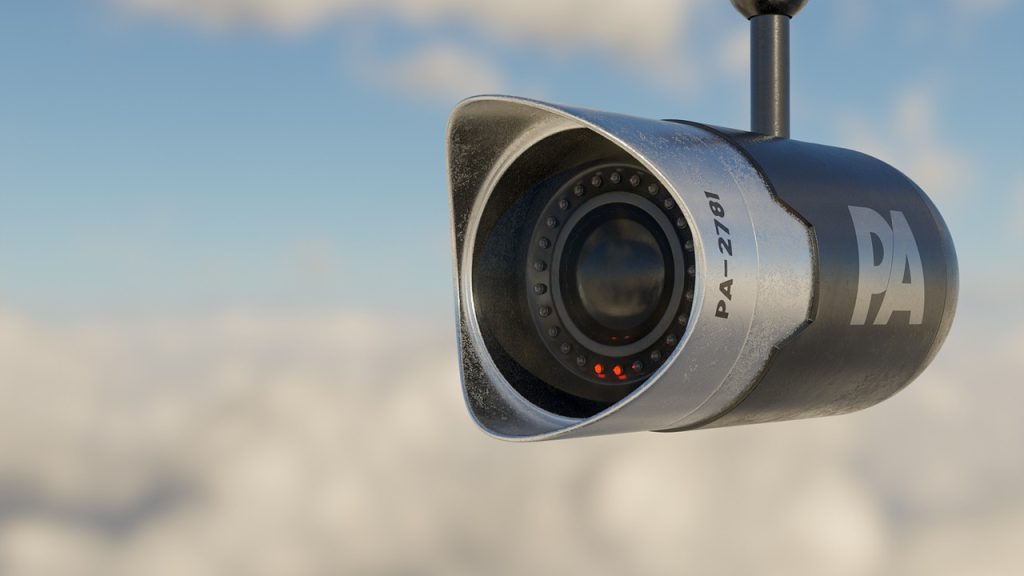Safety and security inside your home are a top priority for almost every person on the planet. With the growing levels of crime around us, studying the available options for improving security is highly important.
Security and surveillance have grown beyond military applications to be used by routine homeowners as well. Now many homeowners and property owners are implementing and using security cameras in commercial and residential property security to improve the security measures they follow. There are a number of CCTV cameras and solutions available in the market today, which help improve the quality of the supervision and make sure that you have everything covered.
Once you head in to buy a camera, you will notice the amazing variety available to you in the market. There are a number of options for each buyer, based on their preferences, the required use of the camera, and the kind of directions they want to follow. The cameras used for a high-security zone may differ from the cameras used in a residential property for secure monitoring of passers-by.
In this article, we look at the factors you should consider when buying security cameras today. The security cameras available in the market today come with unique characteristics and features, which is why it is recommended that you first understand what you require before moving onwards with the purchase.
Things to Consider When Buying a Security Camera
There are numerous factors that you should consider when buying security cameras. The purchase is essential because your entire security and surveillance network is dependent on the footage you get from security cameras around you. The last thing you want is to see blurred and invisible footage when there is a need for more clarity in the footage.
A good camera will ensure that you have proper footage available when push comes to shove, while a poor camera purchased in haste will not be able to meet your specific requirements. In line with the changing needs, we have made a list of factors you should consider.
- Resolution: The very first thing to consider in your purchase is the resolution of the camera. The resolution is a basic feature of the security camera, which can help in multiple applications. A camera with a good resolution ensures that the output generated from the camera is clear to all, and there are no disruptions involved in it. A good camera shouldn’t have a pixilated output that turns unclear as you zoom into it. You should opt for HD or 1080p output if you want decent results. This is the best option available and will help safeguard your interests.
- Night Vision: Your camera needs to come with night vision in it. The night vision will ensure that the camera keeps rolling through the night. Night vision cameras are able to produce good vision even after the sun has set.
- Smart Camera: The technology for surveillance cameras has changed over time, and there are a number of smart cameras in the market today. Smart cameras basically come with sensors, which can help detect all kinds of vibrations, movement, and noise around them. A good smart camera should help you identify issues in the security system and fix them accordingly.
- Temperature Resistant: Most security cameras are installed outdoors, which is why the camera must be temperature resistant. The camera should come with a durable external body, which can help limit the impact of forces of the weather. A good camera should last for long without falling prey to extensive damages.
- Location: While this isn’t directly related to the purchase of your camera, you should assess the location of your camera and make sure that you have all angles covered. The last thing you would want is to miss a view of your front gate, as there is a blind spot that your camera hasn’t covered.
- Network System: The camera itself is nothing without an effective network system. The network system includes all the cables, switches, and internet connections required to keep the camera running. You should also make sure that the surveillance system you buy comes with enough memory under the hood so that the footage shot by you is saved. Most cameras can save 7 days’ worth of output. You can spend some more to extend the memory capacity to include capture recordings spanning over a month as well. However, such devices can be expensive to procure.
- Solar: Solar cameras are quite popular today and run on solar energy. Simple Solar Living has a good list of the best solar-powered surveillance cameras. This list can help you get an idea of the best options in the market.
Buying a CCTV surveillance camera on your own can be a difficult task. However, you can make this process easier for yourself by following the tips above and making sure that you have all bases covered.
